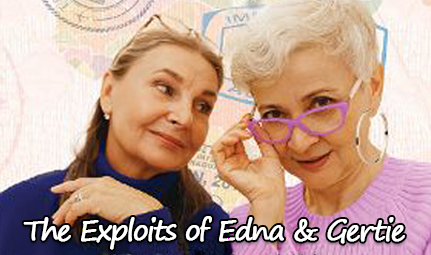Have you ever wondered why some people are artists, writers or inventors? How is it that some people quickly understand the way a story works or the heart of a poem? At least part of the answer is that those persons are able to make connections between bits of information to build a broader understanding.
School teachers understand the importance of making connections. Those students able to find the connections between various pieces of information arrive at correct conclusions faster and also come up with unique understandings. They’re good thinkers and often creative thinkers.
Very young children develop a sense of object, that is they identify the things they see in their environment: toys, clothing, food items. They also develop a sense of space that is location and direction. And thirdly, they develop a number sense: the concept of the number of objects or how much of something. These basic skills later grow into understandings in physics, geometry and general mathematics. Combined with executive functions such as focus, communication, and perspective taking children make connections that lead to basic understandings and sometimes to unique, creative ways of thinking.
Making connections is at the heart of all learning. We determine what is the same and what is different. We sort things into categories and see the relationships between parts. Making connections goes beyond memorization to using the information to gain broader understandings. Real learning happens when we see connections between various facts, findings and concepts.
Learning to make connections involves remembering two or more “rules” at a time, such as sorting blue toys into one basket and red in another. Focus skills pave the way for seeing and making connections. Making connections help children understand their environment, how one thing relates to another. It helps them learn right and wrong and make good decisions.
Parents can support the development of making connections skills in many ways. Here are some of them.
How to Promote Making Connections
- Include the arts in your child’s early learning years. Dance, music, drawing and drama have been shown to have a positive influence on cognitive learning. For example taking music lessons can increase mathematical understanding.
- Follow your child’s unique interests and introduce him or her to that world. If he loves Star Wars, find books and information about space. If she loves seashells, find books and videos about the ocean.
- Teach your child that making mistakes is an essential part of learning. All great thinkers have tried many theories before coming to important conclusions. Too much focus on the “right answer” can stop children from thinking creatively.
- Purchase toys that promote open-ended play. Allow experimentation and don’t insist on the “right way” to play with them. Instead ask, “Where do you think that block should go?” “Can you find a shorter one?”
- Play games that require spatial language such as moving forward and back, up and down, near and far. “Take five steps forward and then turn around.” A sense of space is important to mathematical learning.=
- Play games that build a sense of number and quantity. “How many doggies do you see?” Or, there are three cookies, you may have one.” “Can you show me five doggies and then one more?
- Encourage early learning games that include sorting in many different ways. Which one doesn’t belong, memory games, matching games, what is alike or different. Have your child build patterns and extend them.
- Allow flights of fancy where creative ideas and solutions are okay even if they don’t “work.” Making new and startling connections is the way inventions come into being.
- Encourage early writing skills that focus on creating interesting characters, settings and story lines. Allow the child to dictate stories while you write, and later allow for inventive spellings as unique stories are created. Encourage your child to change a story ending or add a character to a favorite, well-known story. Or have them “write themselves in” to a favorite story.
Making connections is an important skill in all of learning. It’s especially important in reading comprehension skills. Whenever your children can find a similar character, setting or story line or see differences between them, they’re making important connections that lead to broader understanding. Your efforts to encourage your child in this important skill will pay dividends all throughout life.
*Ellen Galinsky is the author of Mind in the Making: The Seven Essential Life Skills Every Child




 The Exploits of Edna and Gertie Join the fun, get your copy now!
The Exploits of Edna and Gertie Join the fun, get your copy now!